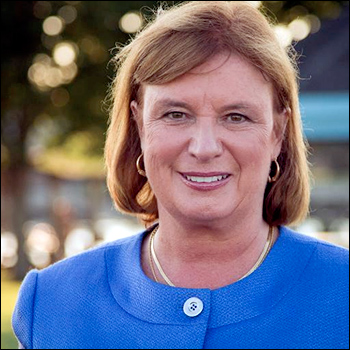By Jim Ellis
Oct. 10, 2017 — Since Pennsylvania Rep. Lou Barletta (R-Hazelton) announced he would run for the US Senate in late August, and after an additional eight US House seats opened in the succeeding weeks, none were as surprising as the latest one announced on Friday.New Hampshire Rep. Carol Shea-Porter (R-Rochester), who represents the one seat that has defeated more incumbents than any other in the last decade including herself twice, announced that she will not seek re-election in 2018.
Her departure reasons were not part of the retirement statement but, for a woman who first came to Congress in 2006, was defeated in 2010, returned in 2012, and then lost again in 2014 before winning once more last November, her voluntary departure was certainly not predicted. Shea-Porter claimed another term in 2016, but with only 44 percent of the vote in part due to three Independent and minor party candidates taking more than 12.6 percent, but the number represented her lowest victory percentage.
Since the 2006 election, inclusive, the NH-1 electorate has consistently defeated its incumbent. In only 2008 was a US representative (Shea-Porter) here re-elected. The district encompasses New Hampshire’s eastern half, including the state’s largest city of Manchester, the Seacoast region, and the mountain area that hugs the Maine border. In the past six elections, the largest recorded win percentage was 54 percent (Republican Frank Guinta in 2010), while Shea-Porter never exceeded 51.7 percent.

